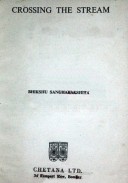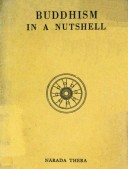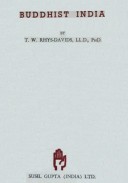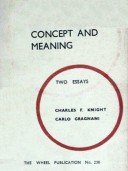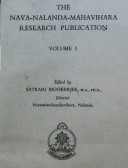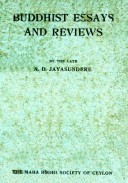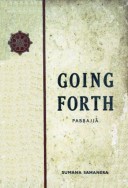Tìm Sách
Sách tiếng Anh-English >> Goethe’s Faust Part One Essays In Criticism
Thông tin tra cứu
- Tên sách : Goethe’s Faust Part One Essays In Criticism
- Tác giả : John B. Vickery & J'nan Sellery
- Dịch giả :
- Ngôn ngữ : Anh
- Số trang : 0
- Nhà xuất bản : Wadsworth California
- Năm xuất bản : 1969
- Phân loại : Sách tiếng Anh-English
- MCB : 12010000005868
- OPAC :
- Tóm tắt :
Mã sách MCB: 12010000005868
Edition 1969
Preface
Faust ranks as one of the greatest works of world literature. Ever since its publication it has stimulated powerful responses in its readers. To this day Johann Wolfgang von Goethe is revered in Germany as the nation’s greatest writer, its most profound sage, and its most versatile mind. Part of this is due to his “universal genius,” to his having written poetry, science, fiction, philosophy, drama, and autobiography. But it is Faust that unquestionably ranks as his masterpiece and best expresses the multifaceted nature of his talent. For both the casual reader and the scholarly critic, this work forms an entrancing enigma. Almost fifty years elapsed from the time Goethe first began Part I until he completed Part II. During this time several versions appeared (Urfaust, Faust Ein Fragment, and Faust Eine Tragödie). Naturally, both the protracted composition and the variety of versions figure prominently in determining the final structure and form taken by the completed work. How they do so is as fascinating a question as it is complex. The same is true of the relationships that exist between the numerous poetic modes and levels of language employed by Goethe. And when one turns to his themes and symbols, one finds that they involve autobiography as well as literary tradition and a number of esoteric intellectual topics, and even the Faust legend’s ambiguous role as symbol of the modern Zeitgeist.
Obviously a work as rich, varied, and complex as Goethe’s Faust has generated an immense body of criticism and scholarly commentary. One scholar has noted that even at the beginning of the century a critical variorum of Faust would have demanded seven volumes, each the size of a dictionary. This collection makes no pretense of selecting its pieces from the whole range of Goethe criticism. Instead, it concentrates exclusively on recent materials available in English and I concerned essentially with the work of literature itself. The essays are I assembled under four heads, representing a combination of general and specific interests that taken together atford an informative introduction to the major critical issues in Goethe’s drama.
Since this volume is intended for use in conjunction with the text of Faust, Part I, it might be useful to mention here the translations most readily available to students. They include C. F. MacIntyre’s translation of Part I (New Directions, 1957), Peter Salm’s rendering I (with the German on the facing page) of Part I (Bantam, 1962), I Walter Kaufmanns version (with the German on the facing page) of Part I and excerpts from Part II (Anchor, 1963), Stuart Atkins revision of the late Bayard Taylor’s translation of both parts, in separate volumes (Collier, 1962), Philip Wayne’s two-volume rendering of the whole drama (Penguin, 1949, 1959), Bayard Q. Morgan’s prose translation in two volumes (Bobbs-Merrill, 1954, 1964), and Charles E. Passage’s version of the entire play in one volume (Bobbs-Merrill, 1965). All of these are readily accessible in paperback editions and contain introductions of varying scope and emphasis as well as, in some cases, critical notes and brief bibliographies.
In preparing this collection the editors have collaborated fully on every aspect, from selection of essays to preparation of the study questions, bibliography, and chronology. By not dividing the labors they have, they hope, avoided conflicts of focus and method confusing to the reader. Most of the essays are excerpts; excisions were based not on the intrinsic merit of the material omitted but on the wish to concentrate on Faust rather than other aspects of Goethe’s career. Omissions are indicated by ellipses (. . .). Translations have been inserted where not originally included by the author and, when possible, the German omitted. The translations were selected and prepared by the editors after a careful comparison of the several versions available. The aim was to provide as much fidelity to the original as was consonant with preserving the clarity of the author’s interpretative argument. Line references have been added to Faust passages to assure ready reference to the text for the purpose either of interpretation or verification of the translation. Original footnotes have been deleted wherever not directly contributory to the main line of the argument. To facilitate use of the collection for the controlled-research paper, the original pagination of books and articles is indicated by numbers in square brackets. The location of the bracketed numbers indicates the end of the page in the original.
The editors wish to express their gratitude to the authors and publishers for their cooperation in granting permission to reprint the essays assembled here. A special and particularly warm acknowledgment of assistance is also due Mrs. Hazel Schupbach of the University of California at Riverside Library who tirelessly performed feats of legerdemain in obtaining books and periodicals through interlibrary loans. We are deeply indebted to her resourcefulness and dispatch, particularly since many of our requests came to her on very short notice.
 Facebook
Facebook
 Google
Google
 Google+
Google+


